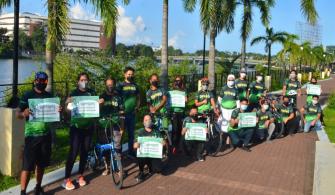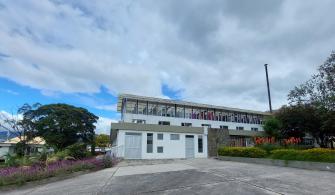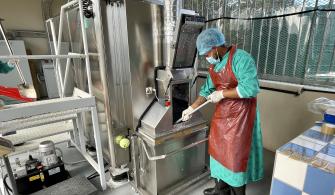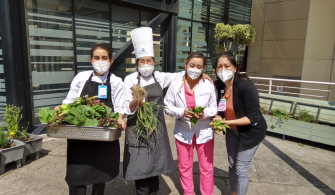It’s very exciting to be part of a strategy that is so ambitious and future thinking. It inspires us as health care workers to play our part in helping our district to achieve the goals we’ve set out.” – Amy Bernotas, Anaesthetic & Recovery Nurse, Hunter New England, Australia
Health Care Without Harm and partners convened health care organizations from 17 countries around the world to share their stories of proven practices and step-by-step guidance for dramatically reducing greenhouse gases and protecting life-giving resources while prioritizing patient care, health equity, and resilience.
Their stories are showcased in the Health Care Climate Learning Initiative: 38 case studies, featuring videos, photos, and graphics that illustrate their challenges, victories, and lessons learned as each finds their path to achieve net zero.
Together, their initiatives achieved more than $15 million in savings, proving that climate-smart health care is economically viable.
of

Khoo Teck Puat Hospital, Singapore

St. Paul’s Hospital of Iloilo, Philippines

San Rafael de Pasto Hospital, Colombia

George Regional Hospital, Department of Health, Western Cape, South Africa

Centro Médico ABC, Mexico
Many of the case studies’ authors are members of Health Care Without Harm’s Global Green and Healthy Hospitals (GGHH) and Practice Greenhealth networks.
The case studies feature initiatives focused on reducing anesthetic gases in the OR, tackling Scope 3 emissions through purchasing decisions, saving electricity and water, switching to less carbon-intensive fuels, producing renewable energy, finding new ways to process hazardous waste, and more.